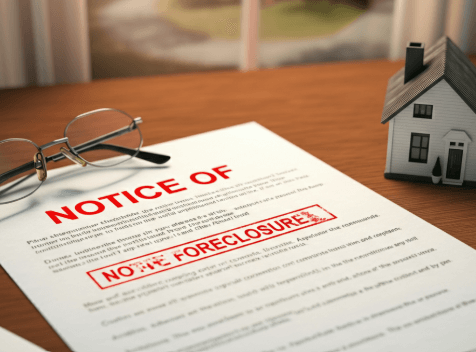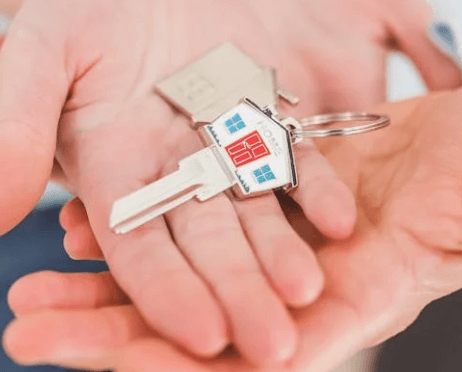When facing financial difficulties and the looming threat of foreclosure, many Lehigh Acres homeowners ask, “Can I give my house back to the bank?” Concerns about the potential costs and emotional toll of a lengthy foreclosure process often accompany this question. Understanding your options is crucial, as alternative solutions may alleviate the burden of homeownership. Read on as we explore the various avenues available to those considering “Can I give my house back to the bank in Lehigh Acres?” as a viable option and what that process entails.
Steve Daria and Joleigh, experienced real estate investors in Lehigh Acres, offer valuable insights for homeowners facing daunting financial challenges. They emphasize that homeowners have options beyond simply giving the house back to the bank, such as negotiating a short sale or exploring loan modifications. By leveraging their expertise, homeowners can confidently navigate the process and potentially avoid foreclosure’s costly repercussions.
Understanding Foreclosure
Before answering the question, “Can I give my house back to the bank?” it’s essential to understand that foreclosure is a legal procedure set by a lender when a borrower has several missed payments, leading to a default on the loan.
During this process, the lender seeks to recover the outstanding balance by forcing the sale of the property that was used as collateral for the loan.
The property is usually sold at a public auction, often at a price lower than its market value, which can result in financial loss for the borrower.

Beyond the immediate loss of the property, foreclosure can significantly damage the borrower’s credit score, making it hard to secure future credit or loans.
Impact on Your Credit Score
This can stay on your credit history for up to seven years, severely affecting your ability to secure future loans, rent properties, or even get certain jobs.
Avoiding foreclosure should be a priority for anyone facing difficulties in maintaining mortgage payments.
Emotional and Social Consequences
Apart from financial repercussions, foreclosure can be emotionally and socially draining.
The stigma associated with foreclosure can affect your personal relationships and mental well-being.
Alternatives to Foreclosure
Here are the alternatives to foreclosure:
Loan Modification
This involves altering the terms of your mortgage to make your payments more manageable.
This can include extending the loan term, decreasing the interest rate, or even reducing the principal balance in some cases.
This option allows you to stay in your home while making payments more affordable.
Short Sale
A short sale happens when you put your property for sale for less than the remaining mortgage amount with the lender’s approval.
Although it still impacts your credit score, it’s generally less damaging than a foreclosure.
Deed in Lieu of Foreclosure
By choosing a deed in lieu of foreclosure, you can voluntarily shift ownership of your property to the lender as a solution for being released from your mortgage settlements.
This choice can help you avoid the lengthy and costly process of foreclosure.
Get An Offer Today, Sell In A Matter Of Days…
Giving the House Back to the Bank
Can I give my house back to the bank? Here are your options:
What is a Deed in Lieu of Foreclosure?
This is a lawful agreement where you voluntarily hand over the property’s deed to the bank.
In return, the bank releases you from the mortgage.
This option can save you from the damaging effects of foreclosure while allowing the bank to avoid the costs associated with the foreclosure process.
Advantages
- Avoid Foreclosure: This option helps you avoid the public record and stigma of foreclosure.
- Credit Score Impact: Although it will affect your credit score, the impact is generally less severe than a foreclosure.
- Move Out on Your Terms: You can negotiate a timeline that gives you sufficient time to relocate.
Steps to Take
- Contact Your Lender: Express your interest in a deed in lieu of foreclosure.
- Document Submission: Submit required documents, including financial statements and a hardship letter.
- Property Appraisal: The bank will conduct an appraisal to determine the property’s value.
- Approval and Agreement: Once approved, both parties sign the agreement, transferring the deed to the bank.
Strategies for a Successful Transition
Can I give my house back to the bank in Lehigh Acres? Here’s what you can do for a successful transition:
Financial Planning
Before giving the house back to the bank, create a financial plan to make sure you can manage your expenses during and after the transition.
This might include budgeting for moving costs, rental deposits, and other immediate needs.
Consult a Real Estate Expert
Real estate experts can give valuable insights and assistance throughout the process.
They can help you know your options, negotiate with lenders, and ensure all paperwork is correctly handled.
Legal Considerations
Taking counsel from a legal advisor can help you understand the legal ramifications of giving the house back to the bank.
They can also assist in arranging the terms of the deed in lieu of foreclosure settlement.

Tips for Communicating with Your Lender
Explore these essential tips for communicating with your lender:
- Be Transparent: Honesty is crucial when discussing your financial circumstances with your lender. Provide accurate information and be upfront about your inability to meet mortgage payments.
- Offer Solutions: Presenting potential solutions, such as a deed in lieu of foreclosure, shows the lender that you are proactive in addressing the situation.
- Keep Records: Document all communications with your lender, including emails, phone calls, and letters. This can be beneficial if any disputes arise during the process.
Frequently Asked Questions
Can I give my house back to the bank? Explore the most common queries:
What Happens to My Credit Score?
While a deed in lieu of foreclosure is less damaging than a full foreclosure, it can still lead to a huge drop in your credit history.
Typically, you can anticipate a decrease of about 50 to 125 points, depending on your existing credit status and history.
This drop reflects the negative mark on your credit report, but it is generally less severe than the impact of a formal foreclosure, allowing for a potentially quicker recovery in the long term.
Can I Buy Another Home in the Future?
Yes, but it will take time. With a deed in lieu of foreclosure, you may be able to qualify for a new mortgage in as little as two years, compared to the seven years it takes with a foreclosure on your record.
Will I Owe Any Money Afterward?
This depends on the agreement with your lender.
Some agreements include a deficiency waiver, meaning you won’t owe any remaining balance on the mortgage.
Always clarify this point before signing.
Conclusion
Navigating the complexities of giving the house back to the bank in Lehigh Acres without an expensive foreclosure can be challenging. However, understanding your options, such as loan alterations, short sales can help you make well-informed decisions.
**NOTICE: Please note that the content presented in this post is intended solely for informational and educational purposes. It should not be construed as legal or financial advice or relied upon as a replacement for consultation with a qualified attorney or CPA. For specific guidance on legal or financial matters, readers are encouraged to seek professional assistance from an attorney, CPA, or other appropriate professional regarding the subject matter.

